#i know a lot of people who did erasmus during uni and they all had great experiences
Explore tagged Tumblr posts
Text
people living in the european union, here comes the silliest question of the year: do you recommend your country for international students?
looking for some recs on where i could apply for a postgrad programme and i'm a bit overwhelmed ;;
#kuu.txt#i have a handful of options i'm actually considering#because i did the numbers and it can actually be better than staying in my country#both economically and from an academical/work perspective#and i want that sort of international experience? i love learning languages and different cultures#i know a lot of people who did erasmus during uni and they all had great experiences#and this my last chance to try something like that so TT
1 note
·
View note
Note
I hope you don't mind my asking, but I'm currently plugging away at getting a college degree (honestly with a lot of misery and not much success) because I don't know what the alternative is. Do you mind my asking how you found another way forward?
Just checked my inbox for the first time in months, sorry I just saw this.... But in case you're still around:
I literally had a mental breakdown on my 4th year of uni, and eventually it led to me dropping out. Then I got a girlfriend in another country (who I had met during my erasmus exchange), moved there to work as an au pair for two years, and then went to live with her.
I found out I was unhireable to work with kids in this country unless I had a relevant degree, and decided to go to a trade school to learn how to be a "practical nurse", in my case specializing in childcare, and immediately after found a job as a teacher's assistant in a daycare. In English, to boot! I was lucky.
Trade school was only two years. Two years and I got a job super quick! And I do truly love my job, even though the kids drive me insane sometimes.
I went to uni for translation, and I liked translating, but the studying was a slog. Consider if the job that the degree is giving you access to is something you will really, really enjoy doing, and if all this suffering now will be worth it one day.
I could do trade school because it was very short and much more practical. There was less studying and more work practice, which suited me better and actually did wonders to teach me about the job. It was still hard, since it was in Finnish, which I was (and still am) not great at, and it switched to completely online bc i started it two months before the pandemic hit. But the end line did not feel so far away, and the certainty that i would have a job by the end of it kept me motivated.
Idk where you're from. I didn't have to worry about student loans, and I even got paid to study here in Finland. The au pairing also helped take me away from home and see the world for myself, since I wouldn't have been able to leave my parents' house as easily in my country.
There is also the option of doing an apprenticeship, working while you study, at least in this country, but you might find something suitable in yours as well; maybe something that is not glamorous, but they need people and they are willing to train them.
I don't know what to tell you! I wish you good luck in whatever you end up doing.
3 notes
·
View notes
Text
something that has been on my mind for a very long time
tw// mentions of ED/weight
I used to be at a very healthy weight when I was around 16/17. I was doing really well and I was very confident in my body, I was in a nutritionist and I was 165cm around 65kg (143 pounds), practicing volleyball almost daily. This all changed when I went on an erasmus trip (for non-europeans, erasmus is basically a school/uni related exchange project) to Cyprus. Since it was a highschool thing it was only for a week, and not a year like in uni, but that week was destructive and it was, ultimately, where the downhill started. I love Greece and all its wonders but my God do I hate your food (except for souvlaki that shit SLAPS), and for those of you who don't know in cyprus they speak greek and are very influenced by greece I can't remember why don't kill me please. So during that week I was staying in someone's home, and every day we ate out, so it was basically pizza and mcdonalds every day. We took the bus every day, so barely any walking and it was basically one week without exercising, and when that one week was reaching its end, some of the pants I had brought along on the trip didn't even fit me anymore. It didn't help that my host family always left these BANGING chocolates on my bedroom. I gained a lot of weight, and when I came back the nutritionist I used to go to moved to a different city and I stopped being able to go there, so my eating habits also changed for the worst, since I was no longer being accompanied. From there it only went downhill, eventually the pandemic came, and I love cooking, so to make me less bored I would bake a lot: from cookies, to pies, to brownies, and because my parents felt bad about us spending so much time without being with our friends and doing the things we love, they let us eat many treats (also to bring down the tension of the panini going on). Now, after almost 3 years, I'm on a journey to finally bring my weight to a healthy place. It's not easy, it's one of the hardest things I've ever had to do: not drinking in parties and festivals, eating rice and vegetables while my friends eat delicious food at dinner parties, being hungry all the time, not being able to eat pork or cow, and just the overall limited food I can eat, it's horrible, because if there's something that we know how to do in my family, it is to cook. We know how to cook and we love to eat, so it's been incredibly hard. It's not the working out that I dislike, I don't care for it but it's not hard. But the bottom of this is: if I had paid more attention to it, I wouldn't be where I am now. If I had taken care of my health even before the pandemic I wouldn't be in this situation.
And this brings me to the point that I wanted to get to in this conversation: how did that happen, and why did I continue as if there was no issue? The answer is simple, because of the body positivity movement. I saw so many women, that despite their weight were confident and beautiful, and I was smaller than a lot of them so I was like, okay, this isn't bad. But it was, and it is. Because what I realize is that these kinds of people, wether their accounts are dedicated to body positivity or not, are being used as inspiration to other people, and are being used to justify unhealthy lifestyles. And what I'm saying isn't that there shouldn't be body positivity, OF COURSE NOT! It is super important for everyone to understand each body is unique and that everyone should be comfortable, but I think body positivity should be centered around stretch marks, hip dips, small boobs, droopy boobs, etc... not when it comes to weight, because being extremely overweight (or underweight, the problem is the same I just don't have experience in it so I won't talk about it) is something to be concerned about. I once saw this article that Tess Holiday (morbidly obese model) where she said she actually ate healthy meals and exercised, which was bullshit, of course, cause when you do those things you lose weight/mantain a certain weight. Ultimately I think that body positivity is, a lot of the times, distorted in a way that helps people justify unhealthy weights, and I want to be very clear here, the problem is NOT the number on the scale, but what happened until it got there. Wether it was bulimia, starvation, overeating, stress eating, or overall gluttony, that is where the problem is. I justified my 30 inch subway sandwich followed by 2 dunkin donuts with 'Im not even that big, and if those women look so beautiful in their bodies so do I' and I was killing myself while I did it.
This was just a little rant, I've had this in me for the longest time and I just wanted to share it
12 notes
·
View notes
Text
Interview series - What after B.Arch? #16
Interviewee: Ar. Valentin Gheorghian Post-graduation: Masters in Architecture | Gheorghe Asachi Technical University of Iași, Romania
What prompted you to take up Architecture? I wanted to become an Architect ever since we had a school assignment in 4th grade at a subject called “technology” when we had to draw our “ideal house” for us and our family. I loved that assignment so much, took a long time to do it properly, and with excellent results – that then and there I decided this is what I would like to do for a living and started to buy architecture magazines/ magazines with houses.
Tell us about studying Master of Architecture at TUIASI. In Romania architecture studies comprise of 6 years and result in gaining both degrees: Bachelor’s and Master’s. One cannot do just the first one – the first one is meaningless. You are not considered a graduate before you finish year 6, pass all your exams and pass the Graduation/ Degree project (final project, 6 month long).
After graduating Year 4, you continue with Year 5 – which is – in theory – already “Master” level – but nothing changes – it’s a continuous 6 year study cycle, no interruptions, same school, same teachers, same colleagues – only different subjects (more advanced), more projects and more complex projects.
Tell us about the application process. There is no “application process” in the way it’s understood in the UK – one has to pass a gruelling admission exam at one of only 6 universities in the country that have Architecture departments. For that 5-6 hour exam, students train – via private tutoring – for at least a year – because the examination requires excellent hand drafting skills, technical drafting skills and advance descriptive geometry – none of which is being taught in high-schools; in that lies the need to take on private tutoring.
One should start with the application process for 2 years in advance.
What preparation did you do before starting the program? There were 10 days of intensive drawing courses – both technical and hand drafting – organised by the university just before the admission’s exam. These were good and useful for someone who already knew what they were doing – but pointless for someone who didn’t have a clue. Students take a minimum of 1 year of difficult private tutoring (with a lot of homework) to get to the drawing (both technical and freehand) skill level required to pass the admission examination.
In terms of pre-reading for the program– I’ve always enjoyed reading about architecture and buildings – but especially about historical buildings/ cities and the history of architecture.
Did you speak to any alumni/professors of the program? I hadn’t met any architecture students or young architects before joining the program – and it would have been extremely useful to gain some insights and tips & tricks and the subtleties of the university. Had only met old architects/ teachers – the ones with whom I did private tutoring to prepare for my admission exam.
Did you have to give any entrance tests? How did you plan for them? The 6 years integrated study program has a 5/6h entry examination testing freehand drawing, technical drawing and mathematical/ geometry skills. One trains in private for at least 1 year for these.
How long was your program? 6 years – October 1st 2007 – October 2013. There is no flexibility regarding fall/spring semesters.
Did you have post-study plans in mind when you took it up? Just went with the flow. Now, however, I am planning to do a PhD in a related field and go into teaching at an Architecture University - because I am astonished about the low wages in the Architecture field - as opposed to other skilled careers - and I would do this as a way to supplement my income. I love teaching as well and I think it would be an excellent for for me - but the main reason is the financial one.
Did you have to apply for a visa? Non-applicable – neither in my home country of Romania (where the bulk of the program took place) – nor during the time spent abroad – which was all spent inside the EU – thus not requiring visa.
How was the experience at the school? Very difficult yet very rewarding at the same time. Longer hours, more courses, more seminars, more projects and more time spent on projects – than any other university that I know of. Less time for socializing and leisure activities than any other students. Longer academic year: from the 1st of October – start of the academic year – until mid-July (end of “practical training” week/ weeks)
How was the teaching and learning environment at your school? Every class (year of study) had their own classroom - 6 years of study – 6 classrooms. There were roughly 50 people per year of study/ class – but never would everyone show up (except perhaps some exams) – so everyone could fit in. Apart from these 6 classrooms – there were 2 multi-function rooms/ projection rooms, amphitheatre type (although not sloped) for projections and special presentations, and an IT lab with computers. That’s it – those were all the available spaces (small school, intimate, student-oriented).
Classical style of teaching – you go in class – just like during high-school – and the teacher teaches for 2h their subject – with either a 10min break between classes, or a small 5min cigarette break mid-way. Most difficult or practical subjects also had “seminars” same duration, same location – during which we would do exercises and problem solving
The frequency of the classes depended on the year of study. The busiest teaching schedule was in year 1 – and decreased progressively towards year 6 – when there are no taught classes at all (only non-supervised individual work on the final project, “degree project” and on the Dissertation – at the same time). Year 1: 6-8hours of classes per day, every day. Year 5: about 3-4hours per day. Year 6: 0. The decrease in number of taught hours was compensated by an increase in number of projects (like “homework”): in year 1 students only had to work on projects in the main school subject, “architectural design” (counting for half of all study credits). This grew up to year 5 – when there were projects to be worked on at home for at least 10 school subjects, such as: urban planning, interior design, special structures, construction materials, and so on.
There was no time for other things – not even a shade of social life. Architecture life occupies ALL your time, at least during uni.
Tell us more about the mentors. One would meet mentors/ teachers/ assistants whenever one could find them around the school or in their office – in years 1-5. There was no formality in the method used to meet with them, no “appointments”, nothing like that. In year 6 – final year – it would be even easier – one would have personal contacts for one’s degree/ final project mentor, as well as a few others with whom one would have a close collaboration for their final project – such as a structural engineer/ structures professor. These meetings would either take place somewhere in the university – or at that teacher’s private practice – most if not all of them also had their private practices and would be project architects on their own. Despite this ease in meeting and approaching – there was and is a much higher degree of formality in addressing/ interacting with teachers – as compared to the
UK or the west. One would NEVER address a teacher/ tutor/ assistant by their first name, for example; that would be a sign of huge disrespect.
Did your institute have any support system for international students? Any incoming international students would come through the Erasmus program, and would stay for half a year, usually in years 3 or 4. There were very few of these – maybe 2-3 per academic year – due to the fact that Romanian architecture and architecture education is completely unknown internationally.
As a general rule – these internationals would live like princes – would enjoy a much easier life than locals/ regulars. The teachers were way more lenient towards them – on one hand – so they would get high marks regardless of their academic performance, and on the other hand – they always had money. Erasmus scholarships barely cover half of one’s living costs in a country such as France (where I had studied as an Erasmus student) – but are way more than needed in a cheap country such as Romania – so sweet life!
Were you involved in research projects while studying? I was involved in all research projects, volunteering activities, publications, work camps and anything related to the subject, both internally and abroad – as visible from my CV. Those abroad were taking place in either English or French. I’ve never seen/met any students from the UK taking part in any of these – thus gaining the impression that UK students are very inward-looking – as opposed to EU students who are very open-minded and open and international and love foreign exchange programs and so on.
Tell us about your time abroad? My 6 month Erasmus program was spent in ENSAP [École Nationale Supérieure d'Architecture et de Paysage] Lille, France - and I lived on campus through the duration of the exchange.
It was a brutally difficult program - not because of the academic level, which wasn’t any higher than back in Romania - but because of the density of classes, amount of project work outside of hours spent in uni, and the (lack of) dedication of my teammates (all projects were done in teams). I regret not having more fun and a social life during my Eramsus - such as most of my friends had - those who went to different countries and destinations - but there was nothing I could do about it.
Could you tell us in brief what your thesis/dissertation/final project was about? My thesis/ dissertation was about gentrification and urban regeneration – with case studies of several post-industrial global cities: Paris, Brussels, Sao Paulo, Shanghai and Detroit; contemporary urban challenges – in very different political/ social/ economical contexts. Differences, similarities, solutions. My final project was an Immigrants Integration Centre in central Paris – combining urban regeneration of a brownfield (urban planning part) with architectural design of 9 individual buildings – a small “city within a city”
The dialogue with my supervisor went smooth and on friendly terms – one chooses their supervisor based on one’s previous grades – and as I finished years 1-5 3rd in my generation (3rd highest score) I could obviously choose whichever tutor I wanted – and chose the one that I had the best relationship with.
What were the frequency, duration and structure of the meetings with supervisor?
All of this was flexible and down to our own (me and the tutor’s) preferences, schedules and available times. Usually we would meet either in my tutor’s practice or at university, for a couple of hours, every 2 weeks or so, and go through the work. Sometimes I would send the latest over email the day before – just to give them the chance to take a look and make some notes – but this wasn’t always possible.
What challenges did you encounter?
The scale of my project and complexity and limited time. I practically managed to finish a volume of work 5 times greater than most of my peers. Practically in 6 months’ time, I did my urban planning dissertation project (a 65-page theoretical analysis, on the subject mentioned above), the urban design of my site, and the full architectural design of 9 large buildings, plus the presentations and graphics of all the aforementioned.
How did you manage the finances? There is NO tuition fee – Education is completely free in Romania – for all levels all the way up to PhD. One only needs to cover for living expenses. My parents covered my living expenses – which – in Iasi, Romania – amounted to less than 200GBP/ month. For example: monthly rent in student dorm: about 50 GBP- all expenses included (heating, electricity, broadband, and so on); local transport card – unlimited travel – 1 month – about 5GBP (yes, five, I am not missing a zero or two J). Some people worked part time/ full time to cover for some/ all of their living expenses. Given the fact that school work required at least 70 hours per week (total - both “home” and “in class”) meant that those who worked were not very good students, and usually missed/ skipped class.
Did you volunteer/work part-time job/intern while studying?
I did only a short stint just before year 6 in a small architectural practice in a small city. It is compulsory to work for 3 months in a supervised way in a practice – and submit reports of what exactly you have been doing there – to be accepted to begin your final/ graduation project and dissertation. I got the job through an older friend’s recommendation – she had already been working there.
How did you choose your accommodation?
I chose a student residence on the university campus. In year 1 nobody is allowed to choose – one is simply allocated a place in a student residence in the campus – if one doesn’t wish to live elsewhere (rent out) – but after graduating year 1 – places are given based on the student’s past performance and grades – and one is allowed to choose. Based on my marks – I always finished among the top 5 people from my class – I always chose what I wanted….though there wasn’t much difference between residences. The ”commute” was a 20min walk – from campus to the Architecture School (all classes and exams took place in the same building – the architecture school building – up to year 5; in years 5 and 6 one might have to do some assignments in a few other buildings – all actually closer than the architecture building)
I considered several factors such as campus student life, proximity and contact with colleagues, proximity to the university, proximity to the shopping mall (there was 1 shopping mall in the city – right there next to campus), social contacts, costs – much lower than renting out while choosing my accommodation.
Did you travel while studying? I had never visited another country before university. By the end of university, I had travelled to over 20 European countries, mostly for studying their culture, architecture and history. Did a 6 month long Erasmus exchange program in France (at ENSAP Lille), an international volunteer restoration work camp in St. Tropez (France) as well as summer universities and specialization courses every summer during my studies – such as at the Bauhaus Architecture school in Dessau, Germany.
How do you think the Master’s degree helped you? By allowing me to be a registered Architect in the UK, EU and RO. Without it I could have only worked as a “draftsperson”
Did the city you studied in play a major role during your study? Yes it did – Iași is a great city to study in – perfect size for a university city (a third of the city is student-population), cheap, interesting, cultural, laid-back: https://en.wikipedia.org/wiki/Ia%C8%99i
Could you tell us about your current work and future plans? I’m working as an Architect and BIM specialist in central London. Depending on the economic prospects in Britain after Brexit – I might move back to France. It was a gamble moving here – having to choose between Paris and London – between the Euro and the Pound Stirling – and the balance tipped in favour of the UK because the GBP was a more valuable currency at the time. Right after the Brexit vote, the Pound dropped by 20% in value – on international markets. What can I say? Very bad timing…my reasons for being here (and not elsewhere) keep disappearing.
Looking back was there anything you would have done differently? I really wish I had worked less and had more fun. I could have had a similar result by working smarter but less – and having more fun. I’d always been afraid to not be a workaholic and go above and beyond. Too bad.
What message would you like to give those planning their post-graduate studies? Think about actual job prospects and the career you want to pursue – and study the market; plan accordingly. Work smart, don’t work more! Have fun – in a smart way – these years are never coming back! Social interaction will never be as easy and with so many opportunities ever again – take full advantage of this! It’s all downhill after graduation – in terms of social life ☺ Seriously, no kidding…

Presenting our team's project at EBEC [European Best Engineering Competition] Romania & Republic of Moldova - National Stage
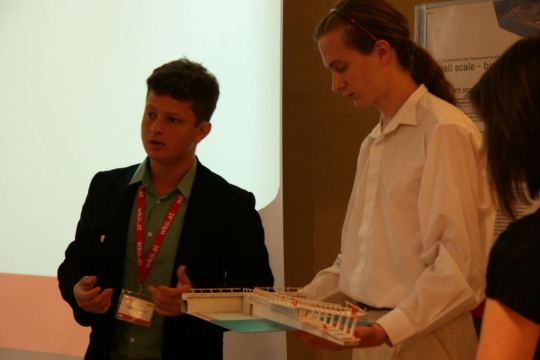
Presenting our team's project - and winning first place - at SUC 12 [Summer University Carinthia] - Villach, Austria
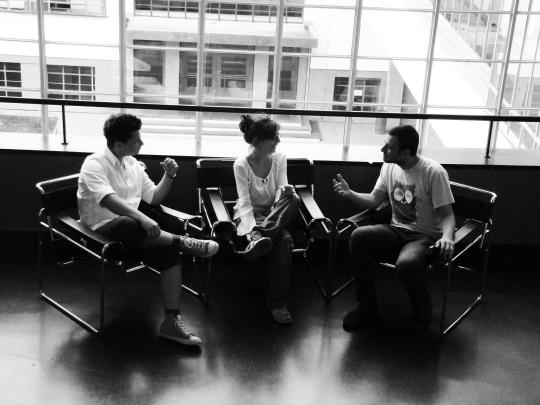
Architect's chat at Bauhaus Summer University, Dessau, Germany
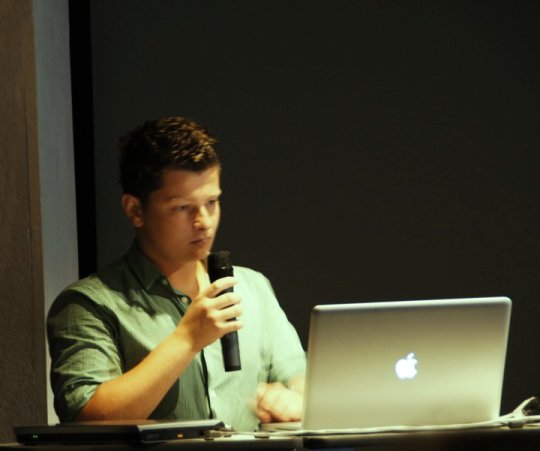
Presenting a school project in front of the Dean of Harvard Universty - Graduate School of Architecture and Design
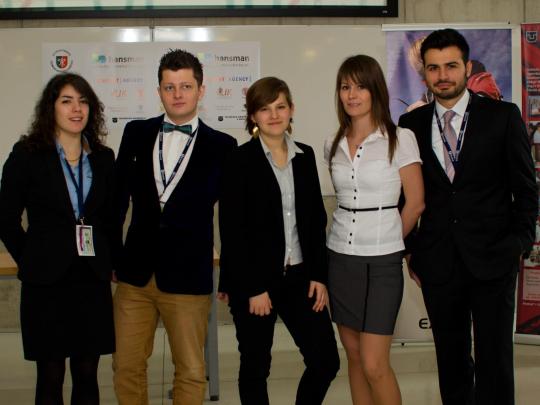
Specialization course in Kosice, Slovakia - international team
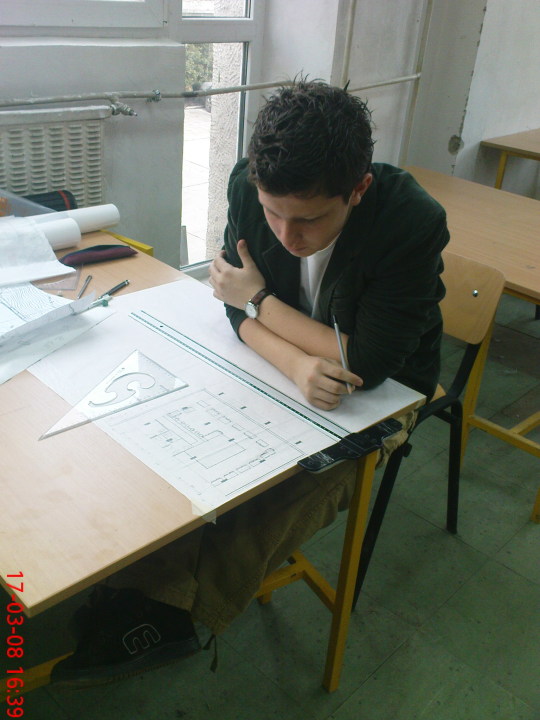
Year 1 - working in the studio - hand drafting

Year 1 or 2: working in the university student dorm
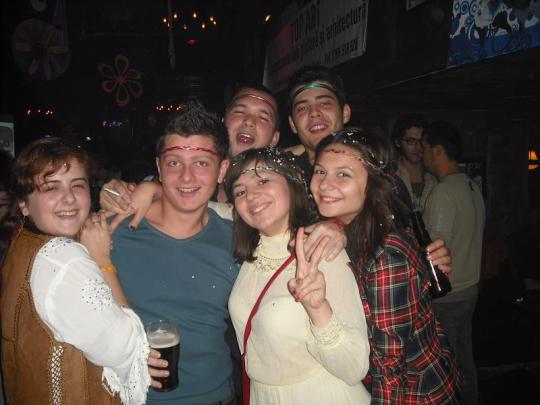
With colleagues from uni
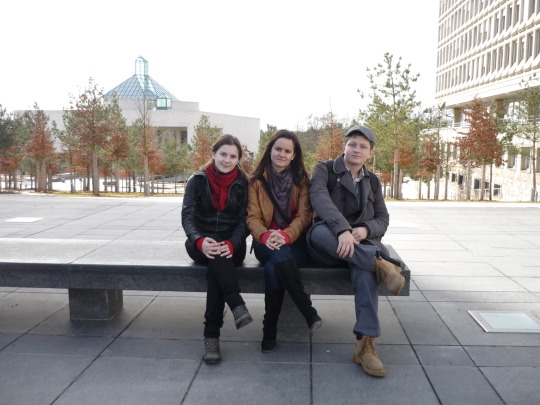
Exploring Luxembourg's contemporary architecture - European Quarter
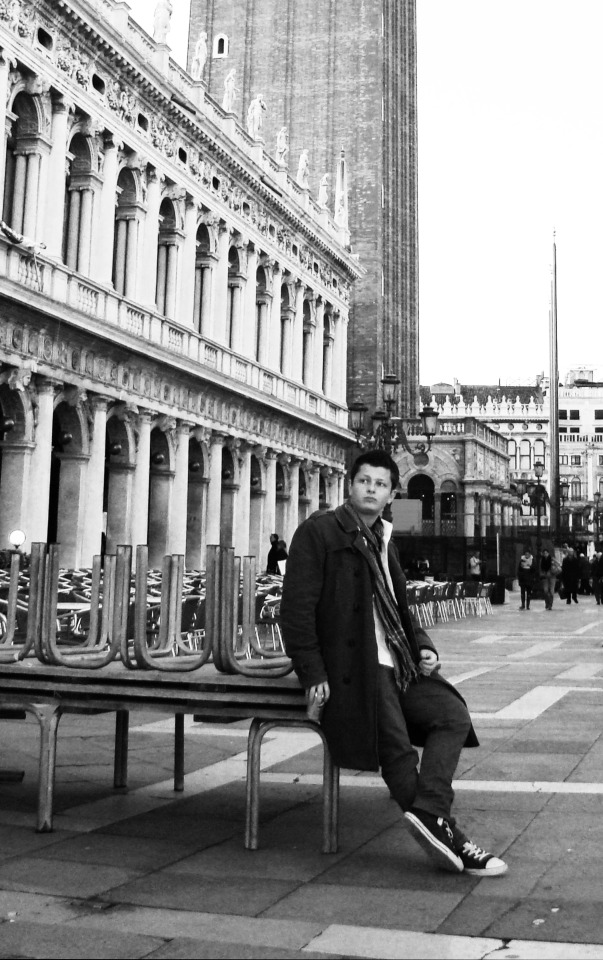
Study trip in Venice for the Architecture Biennale
#Architecture#architecture students#romania#masters in architecture#iași#whatafterbarch#architect#Architects
2 notes
·
View notes
Text
Geneva, the French and the Međimurci
After months of residing in the darkness of inactivity here comes a fresh review of the recent trip to Switzerland. Those 3 days were without expectations and with plenty of spontaneous decisions that turned out...awesome. I even managed get my Master thesis done and sent to print hours before the trip thus not having to bring my laptop there and work at the airport. I would also use this chance to thank again our hosts for the wonderful time we spent there as well as for helping us with the stay in Geneve. Merci beaucoup...or whatever you write it. Now what was all this about, when, why and how...please start scrolling. The whole trip was planned a few months ago as one our best and closest Uni colleagues was going to get married. Since we were sitting next to each other since the day 1 of the University life (and were breaking the Erasmus Intership Exchange ice together writing the letters and creating our portfolios in the bars between the Uni lectures...) there was no way for me not to come there. Wait a bit more to see the wedding pics. The interesting story is that she had met her future husband during Erasmus internship in Paris while I was in Vienna (maybe I should apply again for the exchange?). One of the last things in life I imagined was ending up on a wedding in Switzerland and be surrounded with the French and the Međimurci. On the trip there and back again I was with a few colleagues whom we will refer to as “the Noone”. Let’s start with...
DAY 1: Travelling from Zagreb to Venice Marco Polo Airport. Getting lost in Venice. Evening arrival to Geneve
Just before our trip there were several problems that were kept in secret in order not to spread panic. Our return flight with EasyJet was cancelled due to French Airline’s strike and luckily I was online to check us in on the next one an hour later. Had we not had the second flight the same evening things would gotten nasty with the bus schedule and arriving home on Monday morning to hand in our binded Master’s thesises.
The second crisis emerged early in the morning around 3am when I realized:
a) I left the sunglasses at my barber’s desk the day earlier
b) I forgot the headphones on my desk!!
We travelled with Flixbus, direct line from Zagreb to Marco Polo Airport, at 7.30am and arrived a bit later than scheduled due to traffic problems on the Italian highway and a traffic mess at the bus station in Trieste (sorry Italians, it was another prejudice come true...).
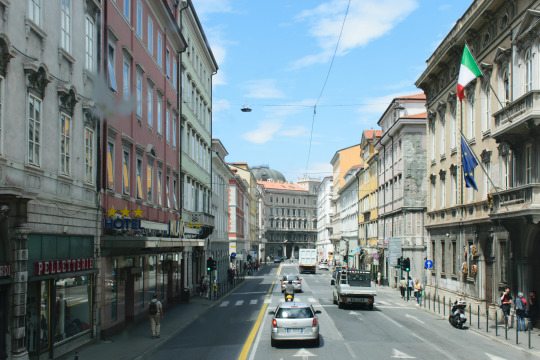
We came to our destination around 2.30pm and had almost 5 hours free before the flight. And what should we do?

Go to Venice of course! For the price of 15 Euros you get the bus return ticket from the airport to Venice. My colleague was there for the first time and for me it was the 3rd. I honestly didn’t expect going there but ... was worth it. The plan was to drink coffee somewhere but we didn’t have time as...umm... I wanted to make a tour around and we got lost on our way back...just a bit. : -) In the end we managed to get in time back.
The overall impression of Venice?
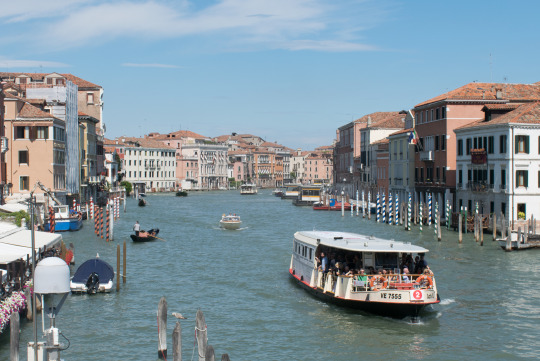
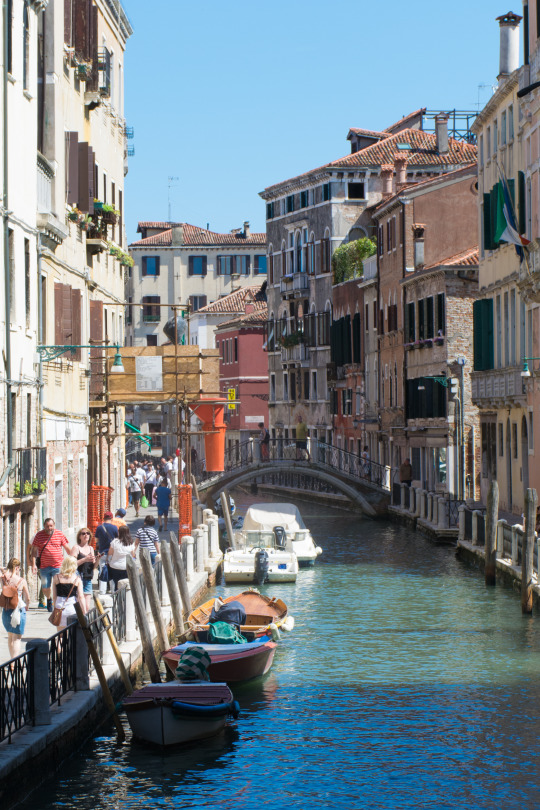
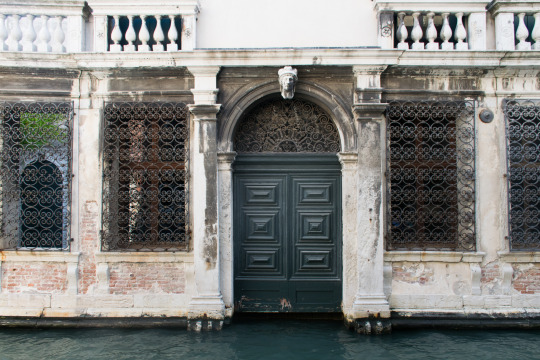
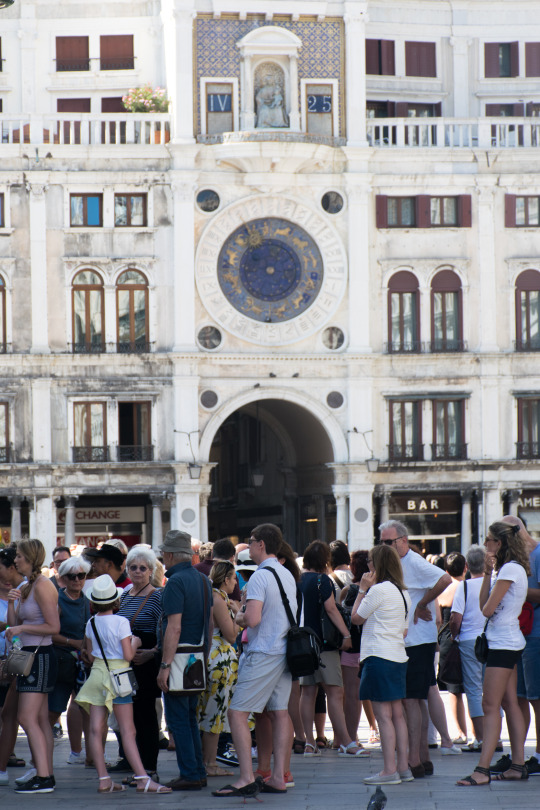
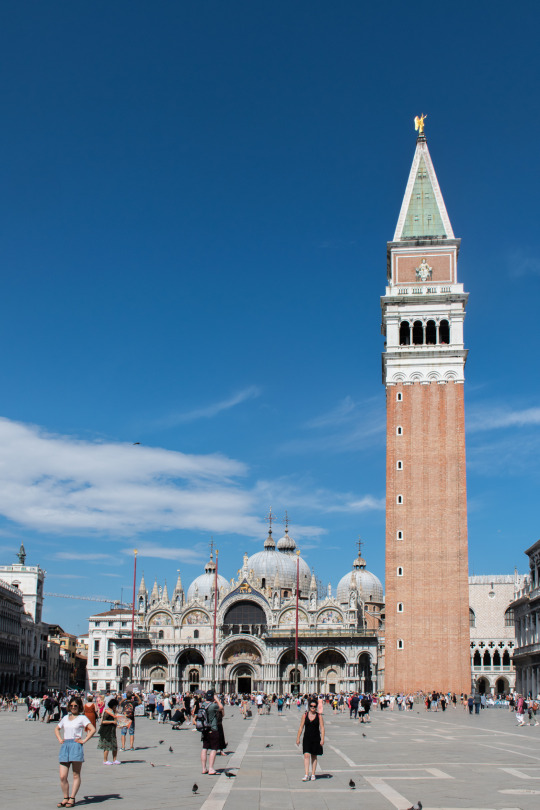
Crowded, hot, stinky...few buildings and streets that impress you in the beginning and then you get bored and start counting nationalities and bricks in the walls. As well as the shades to hide in.
Just before the security check in I realized that I totally messed up with clothes and items in the travel bag...bringing unecessary stuff that took plenty of space. Never again listen to the others and just keep it simple. So I was forced to put my pants, part of ceremonial clothes etc. into the bags of my colleagues. :-D Just like Voldemort with the horcruxes.
Speaking of food and water supplies on your trips and specifically at the airports...there are two kinds of people in this world. Those who buy the bottled water in duty free shops... and those who drink and fill them in the restrooms (toilets). During my 3 days I only drank water from the restroom. Save money, save the nature.
Our flight was around 8pm and I spent most of it (one hour) sleeping dead tired. For those of you who’ve been following me from before you might remember I’ve already been to Switzerland but never in Geneve. (scroll down the blog for those posts).
Geneva airport? While going towards the exit you pass by numerous billboards of the Swiss watches...Rolex, Rolex, Rolex...and Rolex..and so on for the next 5 minutes. The good thing is that all the arriving guests have 80 minutes free public transport ticket so we went to the next stop (Geneve Cornavin). Our hostel (Geneve Hostel) was about 5-7 minutes by foot and close to the Geneva lake. Boys in one room, girls in another to avoid the potential problems. And unplanned weddings.
At the hostel we were also given free public transport ticket that was valid for the whole Saturday and Sunday which helped a lot. It included the train, the boats, the buses and the tram within Geneve. Since France was super close (cca 4 km) there was even a tram line leading there (about 30 minutes)...we heard you can have a cheaper lunch there and planned “to visit France” on Sunday but plans changed.
Before the sleep we searched around the hostel area for some cheap place to grab some food. Now, the word “cheap” in Switzerland is not as same as “cheap” here and the best for your psychological health is not to convert the currency. We found the Ali Kebab place right next to the hostel and ate Chicken Kebab with some salad and French fries for 17,5 Franks, a meal we split for two. This was relatively similar to some prices here so it was not that bad at all. I could have eaten though the whole plate again but my wallet couldn’t. No complaints anyway!
DAY 2: Morning tour around Geneve. Going to the ceremony. The wedding and the afterparty.
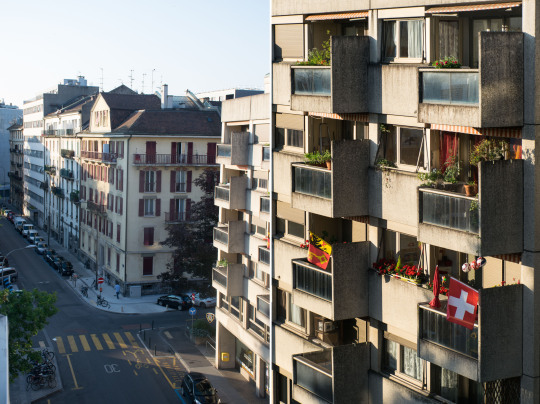

I’m a morning person and Saturday morning was no exception. Woke up early, took a shower, breakfast when there aren’t many people and already ready to go at 7.30am. I got the public transport and city landmarks map at the hostel staff and went to the lake with another early bird. Here are some impressions of the streets, people and cityscape.
Plenty of runners with bluetooth headphones, people walking with dogs, the cylists, expensive cars you see in James Bond movies, the specific architecture, plenty of hotels and banks, mostly clean sterile streets, the promenade and the boats. Pretty much international population and French language everywhere. And I don’t speak French except for few words but was interesting to be in an “alien” surroundings. The lake that is as huge as the sea yet fresh water. Ducks everywhere. What I loved was seeing the bike roads across the promenade and the streets of Geneve. More about it on Day 3. Speaking of traffic behaviour they all more or less stop when you approach the pedestrian zebra crossing and stop even 0,5 m before it if the red light turns on. On contrary, here you’d get run over even if you were sitting on your balcony.
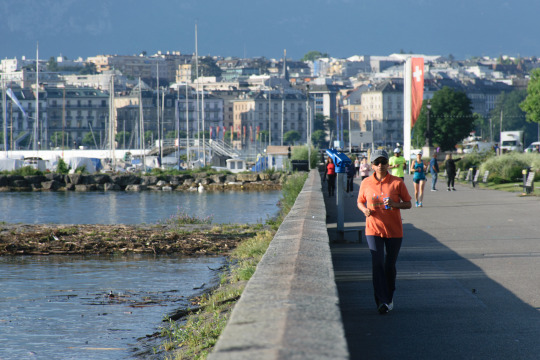


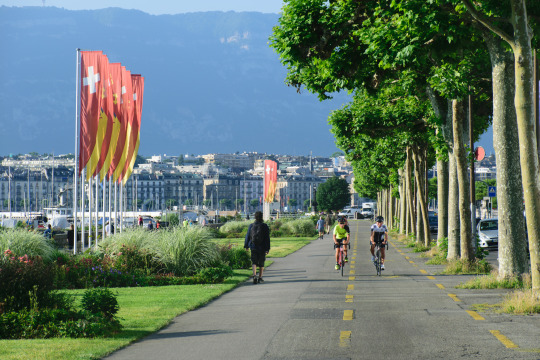


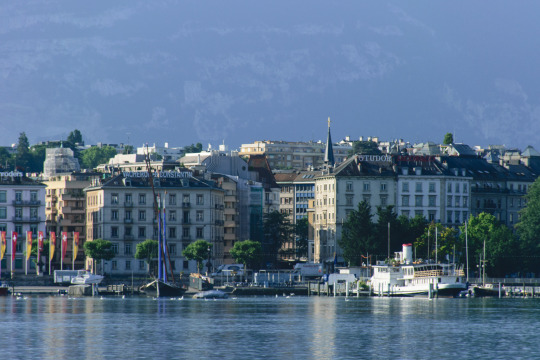
We went back to pick up the third early bird and started our little tour around. There were several bridges in the center and you had a boat connection with other side of the lake. There is the huge wheel with cafes around the big bridge. One of the Geneve’s landmarks is the huge fountain which we reached later and had a free shower. One of the things that pleasantly surprised me was (as I had found out later) the artistic project “Happy City” where there were ca. 20 painted pianos placed around the city’s squares, parks, streets and bridges...where you do as it says “Play, I’m here for you”. So I did what they required you to do. Playing piano on Lake Geneva was another thing I never thought about ... but now I can say “new achievement unlocked”.
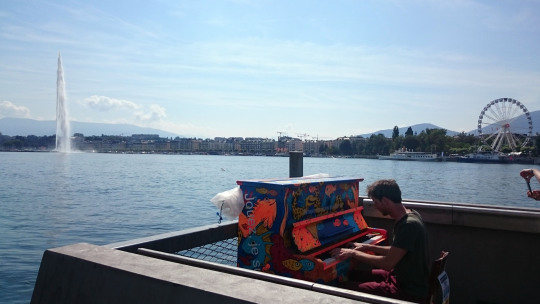

We walked a bit more to the inside of the other side up and down the streets, seen some churches and lots of interenational bars and restaurants. Expensive exotic cars again..and then decided it’s time to go back to hostel.

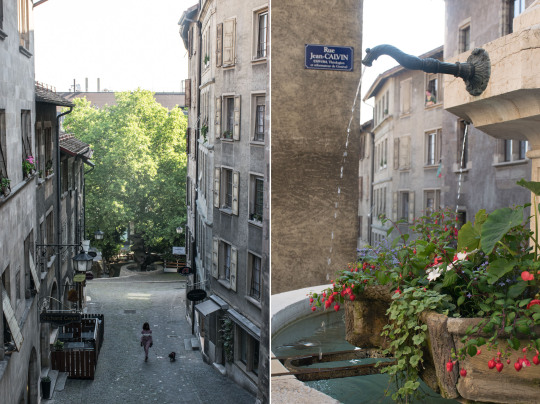


On our way back we checked out Lidl and took some emergency food to have just in case of unexpected hunger. This saved us on the next day. I also almost forgot that right now I can buy and drink Rivella.
Travelling to Gland and the Wedding.
We jumped into our suits and wedding clothes and went to the train station around 2pm. We had to arrive to Gland which is ca 20 minutes away from Geneve and there our fiancée’s family was going to pick us up and transport to the ceremony’s place. While there we got to know our French roommates and colleagues offiancé.
What I liked (and probably others) there weren’t many people as it usually is the case here. I won’t go into details here and throw emotions but here are some things. Close friends and family from both sides, that’s it. The ceremony took place at the fairy location called Le Moulin du Creux. Beautiful house with garden, creek and forest around located 100 meters from the road. Check the nice photos of it and you’ll get the idea.
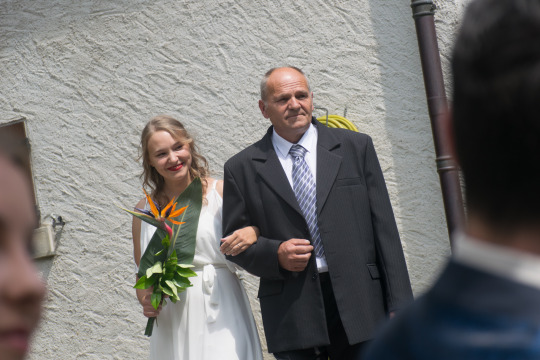
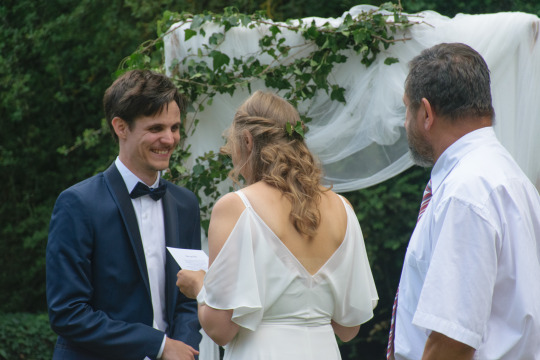
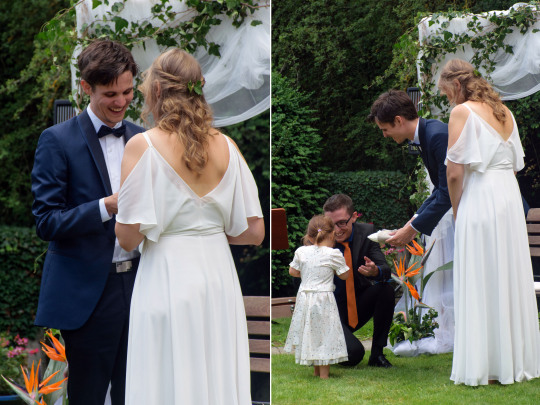


We had two-three pastors, the French ones and the Croatian one. Since most of us didn’t speak nor understood French we had a translator. And it was funny because she was a Slovene translating into Serbian mostly. :)) Nevertheless, an interesting ceremony and a special moment for our now married couple!
What was also new was that after taking pictures and rushing to the tables with food and drinks we also had a game organized - seek and answer game. They hid around 30 photos around the area and we got the papers with questions in French and Croatian. For my team it was kind of a fail in the end. We were trying to learn a few useful French phrases such as J'ai soif which means “I’m thirsty” when sneaking around the table with served drinks.
The other games included a catapult and a cubic football. There was also a gigantic version of the Jenga Tower which was fun to play. We took and received as a memory the polaroid photo with our couple and later moved inside for the dinner and the rest of the show. We watched short movie clips that fiance’s family created about him and our friend. The only problem we had was that we didn’t understand anything as there were no subtitles. :-)
After few more games and meals it was time to go out on the field and light the lanterns. This was a cool thing and my first time to show up and do the thing actually, I think we all enjoyed it. I have no photos of it though but you can imagined what it looked liked having many of them flying up. Let’s hope non of them fell on the forest below. :-D
Soon followed afterparty with some dance music. Some people already had to part and leave. Finally, around 2am we also decided to leave as we didn’t want to miss our train back to Geneve. And of course we missed the first one by being 5 minutes late.
We came to the hostel around 4am and straight to bed.
DAY 3: Tour around Geneve one more time. Coffee & city bikes. Departure.
The final day is here. So far everything great! We made a deal to meet with friends from Nyon around 10.30h at the giant wheel in the center. Shower, breakfast and baggage packed and locked in the hostel. Ready to go.
We took the boat to the other side and soon met with our friends. We then wasted around an hour going to the “old center” only to find nothing interesting there. However, we saw more of the public pianos and parks. For the next half an hour we were on a quest to find a solid cafe to sit and talk about life.

We ended up below the giant wheel and had a tiny cup of coffee for 4 Franks. Naturally, we stayed for 2 hours sitting & chatting there to compensate the loss. I ran out of cash and asked the waiter where to go. After all, Geneva is the city of banks and I hadn’t seen a single ATM machine there. Before running for some cash we decided to visit the giant fountain. On our way there I stopped by the public piano which was now free of ambitious moms and their kids who just pressed random keys but had a cool photo. Actually, I was doing the same. It was funny to have the unusual audience around you.
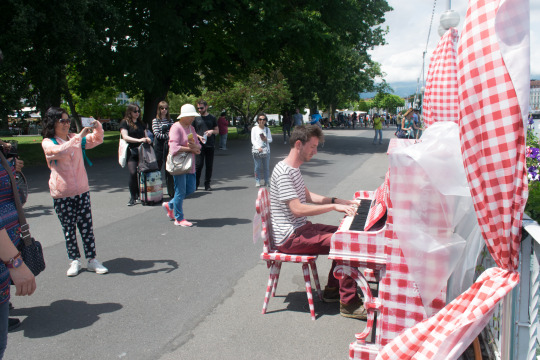
Soon by the fountain. Time for a group photo!

Time flew by quickly and our friends had to find the bus station as they were leaving sooner than us. We went to the center in search of places to eat and after parting with them three of the original squad left. We had a few hours left before rushing to the train station and the airport. Having lunch in France? Visiting France by trams? Visiting France on bikes? Using city bikes to go around? We rushed to the nearst bike station and...all the bikes were gone. Second chance at the one across the bridge. We somehow were lazy to walk and wasted time on the boat. What happened there? Only two bikes left. I agreed to run to the other station as the rest follows me. But the guy working there couldn’t find the keys of the bike so we waster 10 minutes there filling the papers and waiting for him to come to common sense. The third and the last luck before giving up was using the tram to the Station No. 5 ... and...three bikes left, keys in the hands and off we go!
There is no better feeling than going around the new place by bike. Pure freedom and flexbility. We gave 20 Franks deposit and decided towards the north along the lake. Bike routes almost everywhere. Going between the streets was fun. No fear of the vehicles around us.
youtube

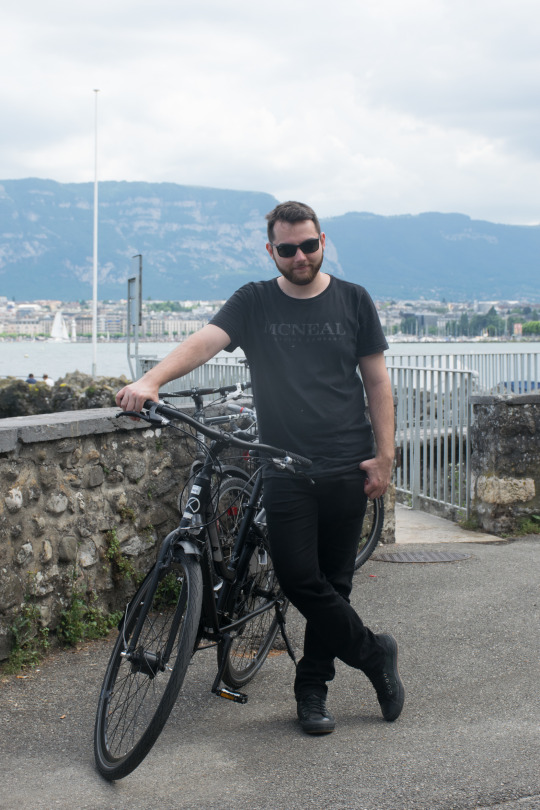
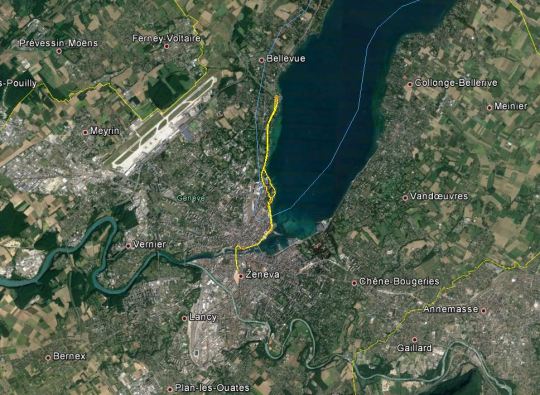
We did cca 10 km in total in about more than hour stopping to take the pictues (the evidences). The idea was to go to France but by democracy 2:1 we gave up from that idea fearing something could go wrong and we get stuck in the middle of nowhere and miss the plane. So we returned the bikes close to our hostel, took the baggage and went to the train station. There we found a nice souvenir and chocolate shop....you can’t leave without one kitschy fridge magnet and a few Toblerones. We met the other Croats who were going back by plane to Venice and I again reorganized my bagge stuff into 2-3 bags of other people. The food from Lidl helped a bit. As well as the good old fresh water from the restroom. I slept again in the plane this time successfully hiding my cabin baggage under my seat as the plane was crowded and full of passangers because of the cancelled flight. New achievement unlocked. We had almost 3 hours to wait for the 2.15am Flixbus for Zagreb. Being dead hungry we checked the available offers at the backery there and found some snacks to survive till home. This time Flixbus didn’t have the second floor (on Friday we found the first row spots on the 2nd floor, the best view and the best way to get killed in an accident). But who cares, soon home! The route was shorter as we stopped only in Ljubljana...I woke up two times in total and the second on just at the Croatian border. The bus arrived precisely at 7.30am to Zagreb, to the most beautiful of the ugliest bus stations in the area. Finally, seeing “Mamiću cigane” grafitti around the station I can say “Welcome back home!”.
5 notes
·
View notes
Photo










KRAKOW – 19th – 22nd April, 2018. Krakow has been on my bucket list for a very long time now. When I did my Erasmus exchange in Coventry last semester I joined the Acrobatic Rock’n’Roll society from uni. They told me that they were going to Krakow to discover the city and to visit the World Cup of Acrobatic Rock’n’Roll so I couldn’t let this opportunity go. I booked flights and a few months later I was reunited with my dancing group from Coventry. Only that was worth the trip. Krakow did not disappoint. I liked Poland a lot. I flew to Wroclaw and from there I travelled to Krakow. I haven’t seen much of Poland but everything I have seen looked lovely. The countryside was green and it felt so peaceful. On top of that all the days that I have been in Poland we had the most beautiful weather with sunshine and blue skies so that made everything look even better. Despite Poland being right next to Germany, I felt like I was in a totally different country in Europe. I think it was mainly because the language is so different from the Germanic languages that I know. Polish is a Slavic language and hard to understand for me as a Western-European. A lot of the older people didn’t understand much English, so I was forced to talk with my hands and feet which was great because the Polish people were all so kind and helpful. Krakow is an amazing destination for a city trip. You could see all the main sights in one day, but you can easily stay here a week as well. I had three proper days in Krakow. On the first day we went to Auschwitz, but I will tell more about this interesting trip in my next blog post. On the second day we went to see the World Cup of Acrobatic Rock’n’Roll. This was a great experience! It took all day and different kind of classes were competing for the title of the world champions. I have never been to a big dance tournament before and it was interesting to see with how much discipline these dancers train and what they are capable of. Here is a video of the whole world cup. It is a long video but it gives an impression of the event. Krakow is after Warsaw the second biggest city of Poland. A lot of buildings in Krakow have survived the Second World War and many years before that makes the city a beautiful architectural melt pot of many eras. Right in the city centre is the main square which is used as a market place. It is surrounded by a lot of restaurants and cafés. Polish food is a must-try when in Krakow. Here on the square you can find the great St. Mary’s Basilica, the Town Hall Tower, the Cloth Hall and many pigeons. At night this square comes to life with street artists and all kinds of people who want to enjoy a drink, food or just a walk around. There are many more things to see in the city centre like the Barbican, the city wall, the Vistula river and Wawel Castle. Wawel Castle is one of Poland biggest castles and historically and culturally the most substantial sight in the country. I didn’t have time to visit it, but I was told that it is definitely worth visiting and that you can spend hours to do so. The city centre is surrounded by wonderful parks which make Krakow green. These parks are the perfect places to relax. The other side of the river Vistula is worth discovering as well. I went for a walk through the Podgórze district. This is where the Jewish ghetto has been during the Nazi regime. This part of the city is less touristy and less preserved, but it also felt authentic. I walked passed St. Joseph’s Church and the Ghetto Heroes Square. On this square 33 chairs were placed as a memorial to the Polish Jews and their suffering. During World War II the Jews in Krakow were forced to live in the Jewish Ghetto. The ghetto was liquidated during the war and many Jews were murdered. A little bit further in Podgórze is Schindler’s factory. Oskar Schindler and his wife saved around 1200 Jews from getting murdered. Nowadays the factory is a museum and I recommend visiting it. The museum doesn’t tell much about Schindler and how he saved many lives, but it tells a lot about Krakow in the Second World War. The museum is well organized and did an impressive job to visualize Krakow during the war. If you have a little bit more time in Krakow, there are more attractions that I heard a lot of positive things about. The first is the Wieliczka Salt Mine and the other tips are the Zakrzówek lagoon and Ojców National Park. I think I gave quite an impression of all the things that can be done in Krakow so go, book your trip and enjoy! Krakow should be on your bucket list, too.
4 notes
·
View notes